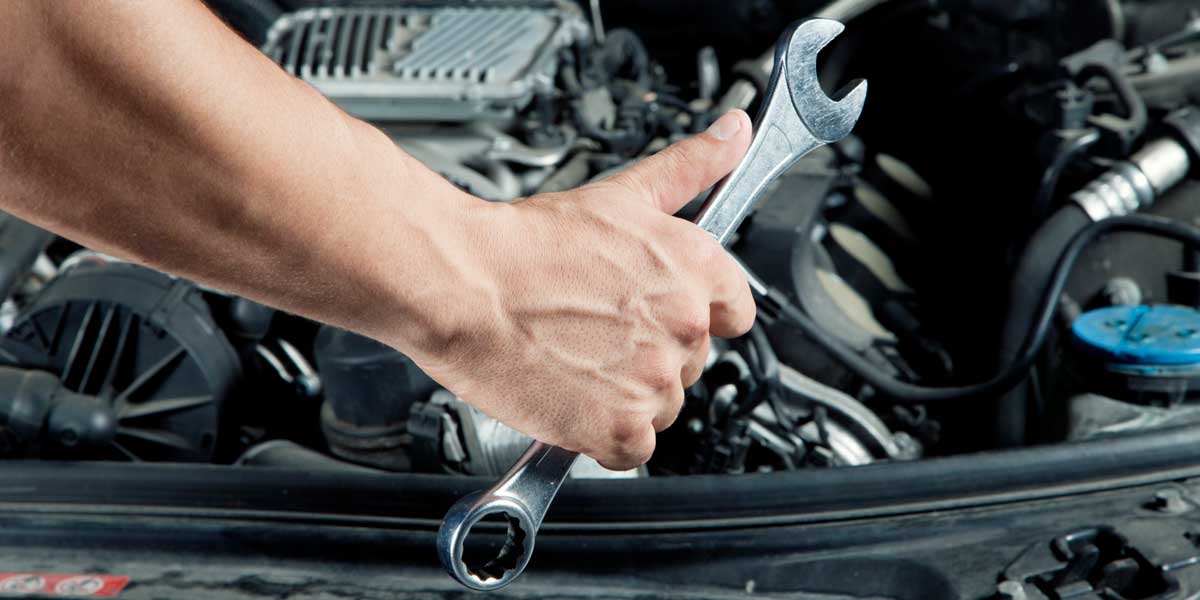All Categories
Featured
Frequently forgot, the timing belt plays an essential function in maintaining your engine synchronized and operating at peak performance. In this write-up, we'll explore the relevance of timing belt substitute and why it's important to your engine's durability.
What Is a Timing Belt and Exactly How Does It Work? The timing belt is a rubber or enhanced composite belt that connects the crankshaft to the camshaft in your engine. These two components need to run in sync for the engine's valves to open up and shut at the best times during the combustion cycle. The timing belt regulates this synchronization, making certain that the pistons and valves do not collide.
![]()
As your engine runs, the timing belt continuously relocates to keep these parts lined up. Over time, the belt undertakes damage from engine, heat, and rubbing vibrations. If it breaks or comes to be loosened, the crankshaft and camshaft will no much longer be integrated, creating engine misfires, loss of power, or, in the worst case, serious engine damage.
Why Timing Belt Replacement Is Vital. Protects Against Serious Engine Damages: If the timing belt breaks while the engine is running, the pistons can collide with the valves, causing bent valves, damaged pistons, or perhaps a broken engine block. This sort of damage typically needs extensive and expensive repairs or a whole engine replacement. Replacing the timing belt before it falls short is a simple and cost-efficient method to prevent such tragic repercussions.
![]()
Makes Sure Smooth Engine Procedure: A well-maintained timing belt aids keep your engine running efficiently by keeping the correct synchronization in between the crankshaft and camshaft. When the timing belt is worn or extended, the timing of the engine's shutoffs may be off, creating engine misfires, harsh idling, or stalling. Changing the timing belt at the suggested period guarantees that the engine operates as it was created to, maximizing performance and effectiveness.
Saves You Money: Although changing the timing belt may appear like a substantial in advance cost, it's much much more inexpensive than the expense of repairing or replacing a damaged engine. The labor associated with replacing the timing belt is much less expensive than fixing engine elements that are damaged as a result of a busted belt. Regular timing belt replacement can save you countless dollars in the future by preventing engine failure and costly fixings.
Stops Unforeseen Break Downs: If your timing belt breaks suddenly while you're driving, it can leave you stranded and need costly towing. In the worst cases, it can trigger a complete engine failure that provides your cars and truck inoperable. By changing the timing belt according to the supplier's guidelines, you decrease the threat of unexpected failures and ensure your vehicle stays trusted throughout everyday driving and lengthy journeys.
When Should You Replace Your Timing Belt? The timing belt does not last forever, and its substitute timeline can differ relying on the make and design of your car. A lot of suppliers advise replacing the timing belt every 60,000 to 100,000 miles. It's vital to consult your automobile's proprietor's manual for specific standards, as some engines might need earlier or later on replacements.
If you're unsure concerning the problem of your timing belt, indicators that it might require changing consist of unusual engine noise (such as ticking or slapping audios), difficulty starting the engine, or bad engine efficiency. If required., a specialist mechanic can inspect the timing belt for wear and tear and replace it.
Verdict. The timing belt is an essential component of your automobile's engine, and its appropriate maintenance can conserve you from expensive fixings and engine damages. Frequently changing the timing belt at the producer's recommended periods helps ensure smooth engine operation, prevents unanticipated malfunctions, and eventually prolongs the life of your engine. Don't overlook this critical maintenance task-- by staying on top of timing belt replacement, you're buying the long-term wellness of your vehicle.
What Is a Timing Belt and Exactly How Does It Work? The timing belt is a rubber or enhanced composite belt that connects the crankshaft to the camshaft in your engine. These two components need to run in sync for the engine's valves to open up and shut at the best times during the combustion cycle. The timing belt regulates this synchronization, making certain that the pistons and valves do not collide.

As your engine runs, the timing belt continuously relocates to keep these parts lined up. Over time, the belt undertakes damage from engine, heat, and rubbing vibrations. If it breaks or comes to be loosened, the crankshaft and camshaft will no much longer be integrated, creating engine misfires, loss of power, or, in the worst case, serious engine damage.
Why Timing Belt Replacement Is Vital. Protects Against Serious Engine Damages: If the timing belt breaks while the engine is running, the pistons can collide with the valves, causing bent valves, damaged pistons, or perhaps a broken engine block. This sort of damage typically needs extensive and expensive repairs or a whole engine replacement. Replacing the timing belt before it falls short is a simple and cost-efficient method to prevent such tragic repercussions.

Makes Sure Smooth Engine Procedure: A well-maintained timing belt aids keep your engine running efficiently by keeping the correct synchronization in between the crankshaft and camshaft. When the timing belt is worn or extended, the timing of the engine's shutoffs may be off, creating engine misfires, harsh idling, or stalling. Changing the timing belt at the suggested period guarantees that the engine operates as it was created to, maximizing performance and effectiveness.
Saves You Money: Although changing the timing belt may appear like a substantial in advance cost, it's much much more inexpensive than the expense of repairing or replacing a damaged engine. The labor associated with replacing the timing belt is much less expensive than fixing engine elements that are damaged as a result of a busted belt. Regular timing belt replacement can save you countless dollars in the future by preventing engine failure and costly fixings.
Stops Unforeseen Break Downs: If your timing belt breaks suddenly while you're driving, it can leave you stranded and need costly towing. In the worst cases, it can trigger a complete engine failure that provides your cars and truck inoperable. By changing the timing belt according to the supplier's guidelines, you decrease the threat of unexpected failures and ensure your vehicle stays trusted throughout everyday driving and lengthy journeys.
When Should You Replace Your Timing Belt? The timing belt does not last forever, and its substitute timeline can differ relying on the make and design of your car. A lot of suppliers advise replacing the timing belt every 60,000 to 100,000 miles. It's vital to consult your automobile's proprietor's manual for specific standards, as some engines might need earlier or later on replacements.
If you're unsure concerning the problem of your timing belt, indicators that it might require changing consist of unusual engine noise (such as ticking or slapping audios), difficulty starting the engine, or bad engine efficiency. If required., a specialist mechanic can inspect the timing belt for wear and tear and replace it.
Verdict. The timing belt is an essential component of your automobile's engine, and its appropriate maintenance can conserve you from expensive fixings and engine damages. Frequently changing the timing belt at the producer's recommended periods helps ensure smooth engine operation, prevents unanticipated malfunctions, and eventually prolongs the life of your engine. Don't overlook this critical maintenance task-- by staying on top of timing belt replacement, you're buying the long-term wellness of your vehicle.
Latest Posts
The Value of UV Defense in Eyewear
Published Jan 19, 25
0 min read
Just How Do Way Of Life Choices Affect Eye Health And Wellness?
Published Jan 19, 25
0 min read
What Are one of the most Popular Furnishings Styles for Modern Living Areas?
Published Jan 19, 25
0 min read